

 Part One
Part OneAntecedents and Infancy


Part One
Antecedents and Infancy
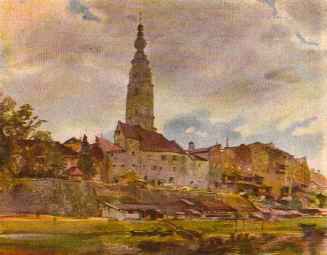
Today it seems to me providential that Fate should have chosen Braunau on the Inn as my birthplace. For this little town lies on the boundary between two German states which we, of the younger generation at least, have made it our life work to reunite by every means at our disposal. [Note: It should not, however, be thought that his nationality was anything but Austrian. It would take some effort in later years to acquire German citizenship]
Although Hitler was born in Braunau on the Inn, his home turf for most of his youth was the Waldviertel (the wooded quarter)1 region of Austria, between the Danube River and the frontiers of Bohemia and Moravia. Only 50 miles from the Austrian capital of Vienna, it was more than a few hundred years distant in time; it was poor, and stubbornly rural. As in any border region, invasions were a commonplace occurrence over the centuries: Huns, Bohemians (13th century), Czechs (Hussite Wars, 1420-1435), Swedes (30 Years War, 1618-1648), and Napoleon (1805).2 All these invasions left their mark on the ethnic background of the inhabitants, including a Czech influence in particular, which derived from the Hussite Wars.
There are countless spelling variations of Hitler's family name.3 Most people in those days were illiterate, having no idea how to spell their own names. When the priests, some of whom seemed to have a talent for creative spelling, would record the marriage or baptism, they would write down whatever they thought it sounded like when the person uttered it. This would vary as dialects, as well as the teeth of the speakers, evolved.
Hitler's ancestors, on both sides, had lived in this region as long as anyone could remember.
From this point on, the historical record contains many Heitlers and Huedlers and Hiedlers and Huetlers and Hytlers and Hittlers, until, in 1702, the first fully fledged Hitler's name is recorded.6 Although it was once suspected that the name was of Czech derivation,7 it was probably not,(8) and Hitler would no doubt turn in the grave he doesn't have, if the name were found to be so. However, it has been suggested that Nepomuk, the middle name of Hitler's great uncle (or perhaps father) Johann Nepomuk Huettler, is perhaps taken after the national saint of the Czech people, Johann von Nepomuk. The most often heard theory is that the surname Hitler is derived from an old 15th century Waldviertel dialect9 word, meaning "small cottager" or "smallholder." Ron Rosenbaum opines that the name was probably regularized to Hitler by a clerk and that the origin of the name is either "one who lives in a hut" (Standard German Hütte), "shepherd" (Standard German hüten "to guard", English heed), or is from the Slavic word Hidlar and Hidlarcek.
Pater Semper Incertus Est
June 7, 1837:13 The unmarried, 42-year-old Maria Anna Schicklgruber of the village of Strones, a "hotel servant" in the Wooded Quarter, gives birth to Adolf Hitler's father, Alois.14 The space for "Father" on the birth form is left blank.15 Her son will be known as Alois Schicklgruber for the next 40 years.16The indulgence normally accorded to a man's origins is out of place in the case of Adolf Hitler, who made documentary proof of Aryan ancestry a matter of life and death for millions of people but himself possessed no such document. He did not know who his grandfather was. Intensive research into his origins, accounts of which have been distorted by propagandist legends and which are in any case confused and murky, has failed so far to produce a clear picture. National Socialist versions skimmed over the facts and emphasized, for example, that the population of the so-called Waldviertel, from which Hitler came, had been 'tribally German since the Migration of the Peoples', or more generally, that Hitler had 'absorbed the powerful forces of this German granite landscape into his blood through his father'.
1842: The older brother of Johann Nepomuk Huettler, Johann Georg Hiedler, a 50-year-old "wandering miller,"17 originally from Spital, and variously described as "shiftless"18 and "no good lazy," marries Maria Anna Schicklgruber. Though much older than Hiedler, she is quite prosperous and in attractively poor health.19 The couple will never actually live together and, despite usual custom, for reasons never made clear, her husband does not legitimize her child, Alois, then 5 years old.20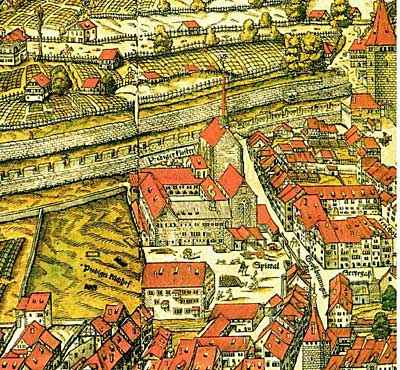
Alois is the only one of Hitler's ancestors, on either side, ever to advance his social position beyond that of peasant. It is with delicious irony—considering Hitler's eugenic beliefs—that critics, such as the noted historian Helmut Heiber, have pointed out, that the "aberrational quality of the Hitler family, beginning with the ambitious and enterprising father of Adolf, shows that other blood must have entered the Lower Waldviertel stock, which had been weakened by years of inbreeding."25
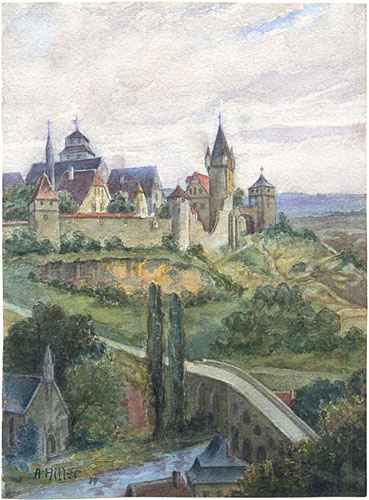
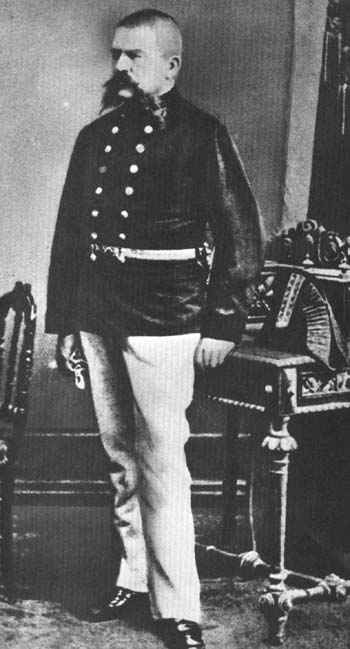
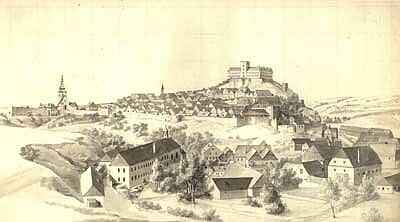
The undersigned witnesses hereby confirm that Johann Georg Hiedler, who was well known to them, acknowledged paternity of the child Alois, son of Anna Schicklgruber, and they request that his name be entered in the baptismal record.
XXX Josef Romeder, Witness
XXX Johann Breitender, Witness
XXX Englebert Paukh, Witness.
Why, after being apparently contented with the Schicklgruber handle for 40 years, did Alois decide to change his name? August Kubizek, a mostly reliable primary source for Hitler's Vienna years, speculated that since old Johann Nepomuk had no male heirs, he therefore made a will, leaving part of his estate to Alois, on condition that he took the name.34 Kubizek should have stuck with what he knew: a will to this effect has never been found;35 and Alois, with a 50-year-old wife at the time, was not likely to sire any immediate heirs. It has often been suggested that Alois, who was of course literate, chose the spelling Hitler,36 not Huettler, as Johann Nepomuk preferred. The fact is that Johann Nepomuk may well have preferred neither spelling, or, being illiterate, he was perhaps ignorant of the distinction. It has also been noted that Nepomuk himself was baptized as 'Heidler' and married as 'Huettler.'
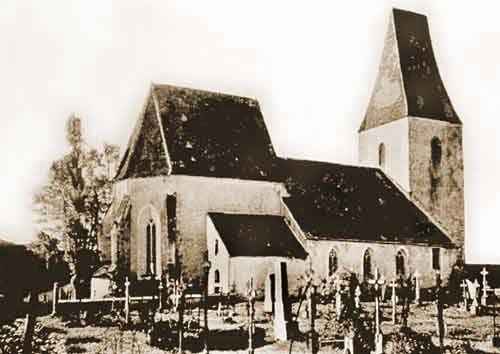
The end result of all this chicanery is that Alois Schicklgruber now legally assumes the name Alois Hitler. Even if Johann Georg really was Alois's father, the within wedlock insertion is obviously Bavarian bologna, and in addition, it was still illegal to change paternity without the consent of the mother, who was dead and could give no consent.
What's in a name? Adolf Hitler would describe this name change as the best thing his old man ever did. He once opined to Kubizek38 that Schicklgruber was "...so uncouth, so boorish, apart from being so clumsy and unpractical... (Adolf) found Hiedler...too soft; but Hitler sounded nice and was easy to remember." It has been said so often that it has become a cliche,39 but it is obvious that the faintly comical Heil Schicklgruber would certainly not have had much appeal to the masses.
Was Johann Georg Hiedler really Adolf Hitler's grandfather, as Hitler himself believed? That Johann Georg never acknowledged the fact is problematic. The strongest second choice would be Johann Georg's brother, Johann Nepomuk, the man who so readily took in the young Alois. Proof of paternity is lacking in each case, however. We will probably never know. Nevertheless, one thing is clear: that with the ambiguity in Hitler's family tree concerning the identity of his paternal grandfather, Adolf would not have been eligible to marry an "Aryan" maiden under his own eugenics laws.40
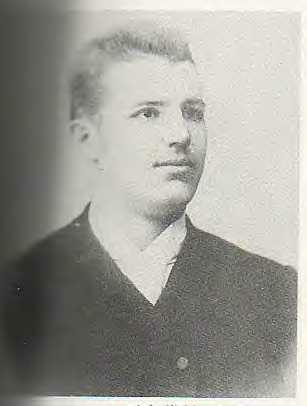
Most Reverend Episcopate!
Those who with most humble devotion have appended their signatures below have decided upon marriage. But according to the enclosed family tree (Hitler Family Tree) they are prevented by the canonical impediment of collateral affinity in the third degree touching the second. They therefore make the humble request that the Most Reverend Episcopate will graciously secure for them a dispensation on the following grounds:
The bridegroom has been a widower since August 10th of this year as can be observed from the enclosed death certificate, and he is the father of two minors, a boy of 2 1/2 years [Alois II] and a girl of 1 year and 2 months [Angela], and they both need the services of a nurse, all the more because [the bridegroom] is a customs official away from home all day and often at night, and therefore in no position to supervise the education and upbringing of his children. The bride has been caring for these children ever since their mother's death and they are very fond of her. Thus it may be justifiably assumed that they will be well brought up and the marriage will be a happy one. Moreover, the bride is without means and it is unlikely that she will ever have another opportunity to make a good marriage.
For these reasons the undersigned repeat their humble petition for a gracious procurement of dispensation from the impediment of affinity. -- Braunau am Inn, 10/27/1884. Alois Hitler, Bridegroom. Klara Poelzl, Bride.
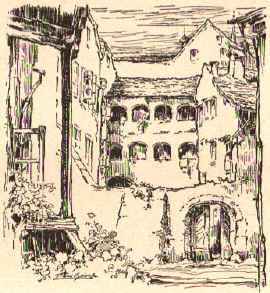
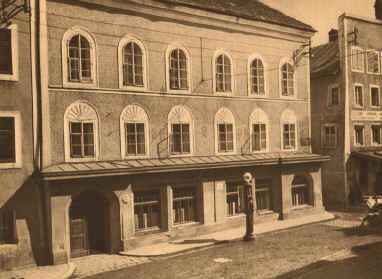
Johanna Poelzl, Klara's younger, hunchbacked sister, is named as one of the godparents, along with Johann and Johanna Prinz, distant relatives living in Vienna.59 The Hitlers' servant girl, Rosalia Schchtl, described Johanna Poelzl as a "haughty, lazy, and not quite normal sister of Frau Klara." "Bad-tempered" and "feeble-minded," she is nevertheless extremely fond of her little godchild. Haniaunt, as she is called, would live in the Hitler home for Adolf's entire childhood. Johanna was the second of her generation in the Poelzl family to have this genetically transmitted deformity. Hitler never had children, remarking that he was fearful that his offspring might be feeble-minded, as often happened to "great men" in history; he would then name examples. This relative was perhaps the personal basis of that fear.60
Klara Hitler was quiet, loving, and an excellent housewife and mother. A girl, who later lived nearby, passed the Hitler house daily. She remarked that Klara would walk little Paula (Adolf's younger sister) "to the fence door and give her a kiss; I noticed that because that was not what typically happened to us farm girls, but I liked it a lot. I almost envied Paula a little."61
Adolf was the fourth child of Klara Hitler, but the first of only two to survive to adulthood. Klara's first three losses made her extremely anxious about the small and frail child. It was more than just sibling rivalry that caused Alois II. to remark: "He was spoiled from early morning until late at night, and the stepchildren had to listen to endless stories about how wonderful Adolf was." By all accounts, although she was kind, loving, and indulgent to all the children in her care, Adolf was her special child. He could do no wrong in her eyes.
Psychologists and historians are wont to point out that Klara Hitler praised, rewarded, and protected the lad, whether his behavior was good or bad. However, she thereby failed to teach him the difference between the two. Perhaps.
While in no way denying the sensible principle of teaching a child values through punishment as well as reward, there is also something to be said for the security of unconditional love, unconditionally expressed. It is little wonder that Hitler would grow up to worship his mother as the finest woman he had ever known, keeping her picture always at his bedside.
The married life of my parents was a very happy one, in spite of their very unlike characters. My father, who was of great harshness in the education of his children and who only spoiled me as the pet of the family, was the absolute type of the old Austrian official, conservative and loyal to his emperor to the skin. My mother, however, was a very soft and tender person, the compensatory element between the almost too harsh father and the very lively children who perhaps were somewhat difficult to train. If there were ever quarrel or difference of opinion between my parents it was always on account of the children. It was especially my brother Adolf, who challenged my father to extreme harshness and who got his sound thrashing every day. He was a scrubby little rogue, and all attempts of his father to thrash him for his rudeness and to cause him to love the profession of an official of the estate were in vain. How often on the other hand did my mother caress him and try to obtain with her kindness, were the father could not succeed with harshness!63
His father, Alois I on the other hand, showed little favoritism; he dominated, and made demands on everyone in the household, without exception.(64) As is usual with self-made men, he worshiped his creator. He had made his way in the world through the civil service, and naturally assumed that his sons would follow suit. When he was asked for advice as to a civil service career for his cousin's son, the Assistant Higher Customs Inspector gave this revealing reply:65
Don't let him think that the Finanzwach (civil service) is a kind of game, because he will be quickly disillusioned. First, he has to show absolute obedience to his superiors at all levels. Second, there is a good deal to learn in this occupation, all the more so if he has little previous education. Topers, debtors, card players, and others who lead immoral lives cannot last. Finally, one has to go out on duty in all weathers, day or night.
One can only assume that Alois is referring to public immorality, such as corruption, and not the private variety. To be fair, illegitimacy and "common-law" relations bordering on bigamy were not at all unusual in the time and place in question, or in any other time and place. This fact alone does not, however, make the behavior moral, or in any way alleviate the consequences of convoluted family structures on the affected children.66
Testimony of a neighbor of the Hitlers:
Old Alois demanded absolute obedience. Frequently he put two fingers in his mouth, let out a piercing whistle; and Adolf, no matter where he may have been, would quickly rush to his father...[Alois] often berated him, and Adolf suffered greatly from his father's harshness.67
Psychologists/historians are wont to point out that Alois Hitler, by beating, berating, and belittling the lad whether his behavior was good or bad, thereby failed to teach him the difference between the two. Perhaps.
While in no way denying the sensible principle of not indiscriminately beating your kid, I think it is fair to say that the "Hitler was an abused child" theory only goes so far. Alois was not unlike many fathers, then and now (This was certainly true of Frederick the Great, Hitler's hero, who was very brutally treated by his father.), most of whose sons did not grow up to become vilified by the world as the epitome of evil.
Outwardly, his love for his mother was his most striking feature. While he was not a "mother's boy" in the usual sense, I have never witnessed a closer attachment. Some insist that this love verged on the pathological. As a former intimate of the family, I do not believe this is true. Klara Hitler adored her son, the youngest of the family. She allowed him his own way wherever possible. .... She did her best to raise her boy well. She saw that he was neat, clean, and as well fed as her purse would permit. Whenever he came to my consultation room this strange boy would sit among the other patients, awaiting his turn. There was never anything seriously wrong.63
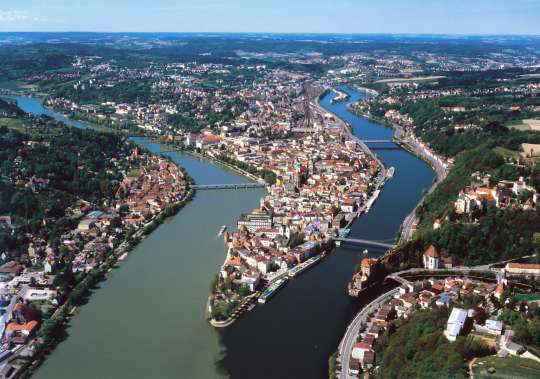
The German of my youth was the dialect of Lower Bavaria; I could neither forget it nor learn the Viennese jargon.
Hitler's "youth" was only up to the age of 6, when his family returned to Austria proper. He should have been able to absorb more than one dialect. It is much more likely that it stemmed from 1913 onwards, when he went over to Munich, served in a Bavarian regiment, and made Munich his base until 1933. It has also been pointed out that there is here a subjective distinction between a German dialect and the "jargon" of the great Viennese capital. Whether there is much distinction between two south-German dialects is debatable. If it is true that he could not learn it, it was because he was not good at languages.70



Written by Walther Johann von Löpp Copyright © 2011-2016 All Rights Reserved Edited by Levi Bookin — Copy Editor European History and Jewish Studies

Twitter: @3rdReichStudies



Disclaimer: The Propagander!™ includes diverse and controversial materials--such as excerpts from the writings of racists and anti-Semites--so that its readers can learn the nature and extent of hate and anti-Semitic discourse. It is our sincere belief that only the informed citizen can prevail over the ignorance of Racialist "thought." Far from approving these writings, The Propagander!™ condemns racism in all of its forms and manifestations.
Fair Use Notice: The Propagander!™may contain copyrighted material the use of which has not always been specifically authorized by the copyright owner. We are making such material available in our efforts to advance understanding of historical, political, human rights, economic, democracy, scientific, environmental, and social justice issues, etc. We believe this constitutes a "fair use" of any such copyrighted material as provided for in section 107 of the US Copyright Law. In accordance with Title 17 U.S.C. Section 107, the material on this site is distributed without profit to those who have expressed a prior interest in receiving the included information for research and educational purposes. If you wish to use copyrighted material from this site for purposes of your own that go beyond 'fair use', you must obtain permission from the copyright owner.